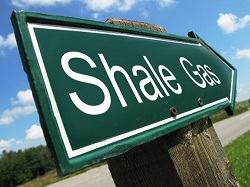- Home page /
- News /
- Company news /
- Russia May Benefit from Shale Revolution
Russia May Benefit from Shale Revolution
10.12.2013
 |
| Courtesy of gazprom.com |
The steep growth of shale gas production in the US and other countries known as the shale revolution means not only risks but new opportunities for Russia, International Energy Agency's (IEA) chief economist Fatih Birol said.
He said: "The leading suppliers of natural gas have been losing their former role as a result of the shale revolution. Russia may face more competition due to the continuing diversification of supplies and the emergence of new exporters such as Australia and North America, as well as new suppliers of natural gas."
At the same time, said Birol, the continuing development of unconventional gas resources was likely to increase trust in gas as a reliable energy source so the role of gas in the global energy supply structure was set to grow. "This is good news for such big suppliers as Russia," said Birol.
He also opined that as a result of the shale gas revolution, gas prices would most probably be driven by supply and demand and less linked to the price of oil.
According to the IEA, Europe remains the main market for gas. Europe’s demand for gas is set to grow to 450 billion cub. meters by 2035, which is double the expected deliveries to China. "This export market will remain the key market for Russia. At the same time, the place of gas in the EU’s energy supply structure is less secure than several years ago," said Birol.
"Gas consumption in Europe fell by 2% in 2012 as the economic situation cut the demand for energy and prompted an increase in the consumption of energy from renewable sources and coal. Thus, gas lost its former significance. The uncertainty in this field as well as the growth of gas consumption in Asia should prompt Russia to more actively diversify its energy exports," he mentioned.
He said: "The leading suppliers of natural gas have been losing their former role as a result of the shale revolution. Russia may face more competition due to the continuing diversification of supplies and the emergence of new exporters such as Australia and North America, as well as new suppliers of natural gas."
At the same time, said Birol, the continuing development of unconventional gas resources was likely to increase trust in gas as a reliable energy source so the role of gas in the global energy supply structure was set to grow. "This is good news for such big suppliers as Russia," said Birol.
He also opined that as a result of the shale gas revolution, gas prices would most probably be driven by supply and demand and less linked to the price of oil.
According to the IEA, Europe remains the main market for gas. Europe’s demand for gas is set to grow to 450 billion cub. meters by 2035, which is double the expected deliveries to China. "This export market will remain the key market for Russia. At the same time, the place of gas in the EU’s energy supply structure is less secure than several years ago," said Birol.
"Gas consumption in Europe fell by 2% in 2012 as the economic situation cut the demand for energy and prompted an increase in the consumption of energy from renewable sources and coal. Thus, gas lost its former significance. The uncertainty in this field as well as the growth of gas consumption in Asia should prompt Russia to more actively diversify its energy exports," he mentioned.
Source: angi.ru

